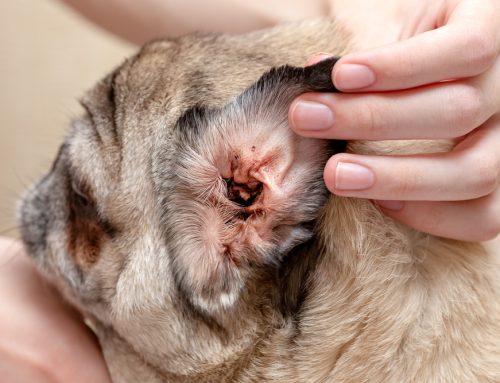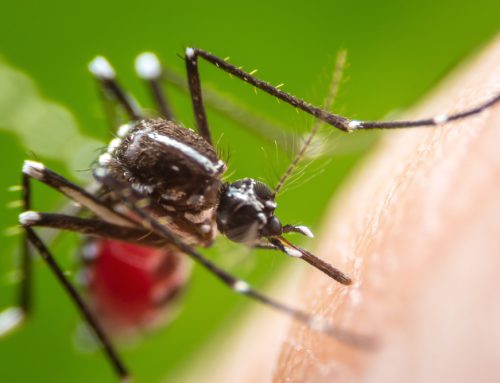The world of pet parasites can be confusing, since each parasite differs greatly in how they spread disease, reproduce, and are eliminated. To help spread knowledge about fleas, ticks, and mosquitoes, and how they can affect your pet, our Countryside Veterinary Hospital team did our own version of Mythbusters. Read on, to learn whether or not the following statements about pet parasites are true.
True or false? All external parasites die off during the winter
False: What a wonderful world it would be if all the biting, sucking, and stinging pests died off each winter! Unfortunately, that dream occurs only in cold climates, where the temperature during the winter months consistently remains below freezing. In balmy Alabama, fleas, ticks, and mosquitoes threaten you and your pet year-round. Any time the temperature rises above freezing, parasites re-emerge in search of a warm-blooded meal. The colder states with erratic weather also can experience parasite surges during January and February, if the temperature rises enough to create a hospitable environment.
True or false? Mosquitoes can also transmit heartworms to cats
True: People often think of heartworm disease as a canine condition, but this deadly disease can also affect cats. However, cats are not the ideal host for heartworms, so the adult worms live for two to three years, rather than the five to six years in dogs. Despite this shortened lifespan, heartworms can cause massive damage to a cat’s respiratory and circulatory system as they mature and migrate throughout the body. In fact, a cat’s sudden death is often the first indication to a pet owner that their cat had heartworm disease. Because the disease can be unexpectedly deadly, year-round parasite prevention is essential, for indoor-only cats, too.
True or false? Fleas and ticks are easy to remove from pets
False: Although removing such small parasites from your pet sounds simple, fleas and ticks are tenacious pests, and can live on your furry pal and in your environment for months. Fleas are especially hardy, and can lurk in your carpet, under your furniture, and in your pet’s bed, shedding eggs that can take a few short weeks—or more than a year—to mature into adults. Since the flea pupae can hide out in carpet and furniture fibers while they wait for the right conditions to emerge as adults, year-round parasite prevention is necessary to prevent an infestation.
You may not notice a tick on your pet until it’s been attached for days, and has become bloated. At this point, you may be tempted to grab the tick with a tissue to quickly remove it, but this is not the most effective removal method. A tick that is inadvertently squeezed can inject disease-causing pathogens into your pet, and removing the tick too hastily can leave the head behind, still lodged in the skin. Preventing ticks from attaching themselves to your pet by keeping them on preventives year-round is far simpler.
True or false? Treating parasitic diseases requires only a short antibiotics course
False: Many infections improve with an antibiotics course, but the pathogens that fleas, ticks, and mosquitoes transmit require different treatment. Some diseases, like Lyme disease, can improve with antibiotics, but the Lyme bacterium will always be lingering in your pet’s body, and can flare up during times of stress and illness. In the case of heartworm disease, your dog would need a series of injections derived from an arsenic compound to eradicate the parasite. For cats, no approved heartworm treatment is available. Since treatment for parasitic diseases can be complex—or non-existent—protect your pet from these pests.
True or false? Keeping your pet on parasite prevention is easy
True: Giving your pet a pill can be a challenge, but parasite prevention products come in various forms, and make administration easy. Topical medications can be applied to the skin, or long-lasting collars can keep fleas and ticks at bay for months. Search our online pharmacy for the best parasite preventive for your pet.
True or false? All pets need year-round parasite prevention

True: Your cat may be too chicken to venture a single whisker outdoors, but they still need parasite prevention. Parasites are opportunistic creatures that will find a way to slip inside your home to feast on your pet. The only fool-proof method of protecting your pet from parasitic diseases is to administer year-round parasite prevention.
Are you struggling to choose the perfect parasite preventive to keep your pet safe from harm? If so, contact our Countryside Veterinary Hospital team, and we will advise you on the best option for your four-legged friend.








Leave A Comment